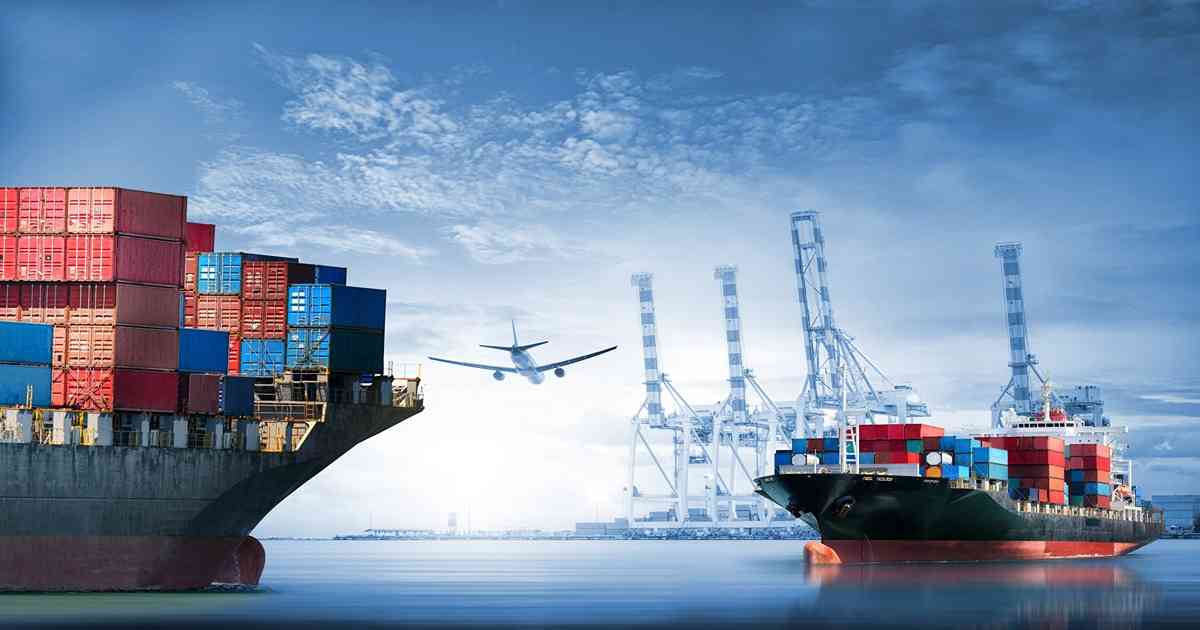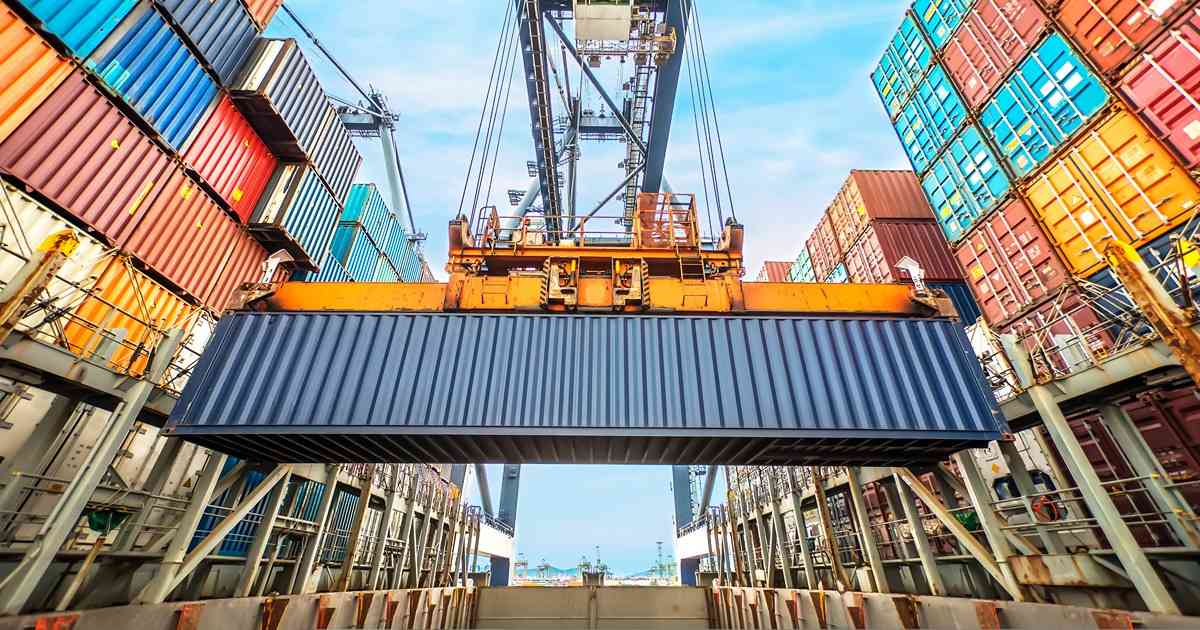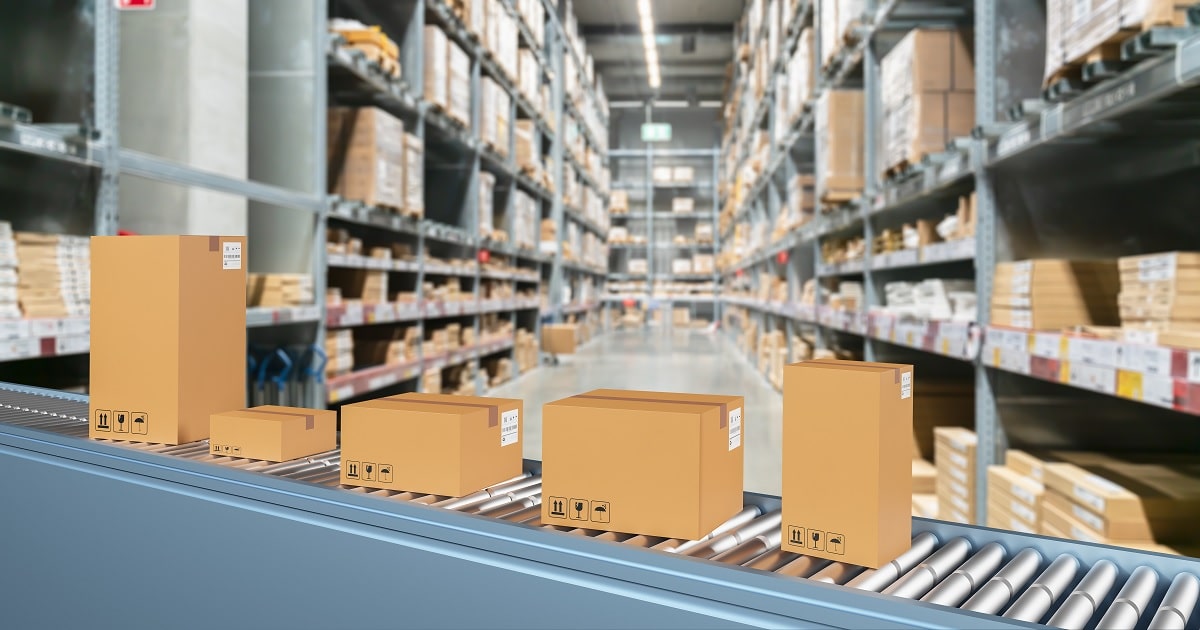
Transportation
Article | April 26, 2023
Maintain a competitive advantage by effectively managing supply chain. Discover the potential opportunities and enhance the career in logistics with warehousing and distribution certificates.
The rapidly changing and fiercely competitive business landscape necessitates that professionals must go an extra mile to maintain a leading edge and propel their careers forward. Taking the initiative to pursue warehousing and logistics certifications can significantly boost your career. By obtaining a recognized designation, you demonstrate a steadfast dedication to your profession, enhancing your appeal to potential employers. Furthermore, earning a respected certification can open doors to advancement opportunities and increase making potential within your current organization. Moreover, pursuing ongoing education offers rewards, keeping you engaged and ensuring you remain at the forefront of industry developments.
1. Supply Chain Warehousing Certificate
Supply Chain Warehousing Certificate is a comprehensive program for individuals seeking expertise in warehousing and logistics. Developed by ASCM and Prologis, it covers essential topics such as inventory management, packaging, shipping, and sustainability in logistics. This self-paced course offers flexibility and can be accessed on mobile devices. Earning one of the exclusive warehousing and distribution certifications demonstrates your knowledge and expertise in managing inventory and helps you stand out in the competitive job market. Employers will recognize your ability to handle shipping processes, improve order fulfilment, and make informed transportation decisions.
2. SAP Extended Warehouse Management Training
Enhance your expertise in warehousing management with this top-tier online certification course. Gain in-depth knowledge of extended warehouse management, including warehousing structures, expert data, and warehouse organization. This warehousing and distribution course includes techniques for processing received and shipping goods, slotting, replenishment methods, and physical inventory. Delivered through video and text-based modules, it provides comprehensive warehousing and distribution center operations training. In addition, this course will expand your career opportunities and help you excel in the dynamic field of warehousing management.
3. Storage and Distribution Certification
Storage and Distribution Certification is a complete course that addresses the critical need for supply chain safety and integrity in today's complex logistics landscape. This supply chain warehousing certificate is focused on distribution and is designed for warehousing, logistics, and supply chain management professionals. The program covers supply chain visibility, risk management, and optimizing physical-flow networks. There are no specific eligibility criteria for this course, making it accessible to a wide range of individuals seeking to enhance their skills and knowledge. By obtaining this one amongst many warehousing certifications in this course , you'll be equipped with the expertise to mitigate supply chain vulnerabilities, improve operational resilience, and meet the evolving demands of the modern marketplace.
4. Certified International Warehouse and Inventory Manager
The Certified International Warehouse & Inventory Manager certification offered by Blue Ocean Academy in Dubai and Abu Dhabi provides professionals with comprehensive training in warehouse management. Blue Ocean Academy, recognized as an industry leader in this field, offers the best warehouse and inventory management training courses. The Warehouse Management Certification Program focuses on the strategic role of warehousing within the broader context of supply chain management and logistics. Participants will gain knowledge and skills in the latest methods for storing and safeguarding high-value inventories and best practices for modern warehousing. The program also covers techniques to achieve accurate record-keeping and successful cycle counting, methods for conducting warehouse audits, and the operational and financial performance aspects of warehousing.
5. Warehouse Excellence Certification (WAREX)
Developed by the Institute of Supply Chain Management (IoSCM), Warehouse Excellence Certification (WAREX) helps to elevate your warehousing career. This logistics warehousing and distribution program offers a range of qualifications catering to professionals at various stages of their logistics, warehousing, and distribution journeys. WAREX covers a broad spectrum of skills and knowledge, from entry-level to strategic management positions. Whether you're new to the industry or a seasoned professional, this certification equips you with the expertise to optimize warehouse operations, enhance inventory management, and drive overall supply chain efficiency.
6. Six Sigma Certification in Warehousing: Overview & Career Options
Six Sigma Certification in warehousing is a specialized program that equips professionals with the tools and methodologies to optimize warehouse operations, eliminate defects, and achieve near-perfect efficiency levels of 99.997%. By applying Six Sigma processes, businesses can identify and solve warehouse problems, resulting in improved customer satisfaction, increased revenue, reduced errors, efficient inventory management, and enhanced overall profitability. With this warehouse certification program, you'll stand out in the job market with higher employability, salary potential, and opportunities with renowned companies like Amazon, Samsung, Boeing, FedEx, DHL, and UPS.
7. Certified International Warehouse & Inventory Manager
This certificate in warehousing management is specifically designed to equip professionals with the necessary skills and knowledge to excel in the dynamic world of warehouse operations. This program covers a wide range of essential topics, from strategic warehouse management to inventory optimization and sustainable practices. Participants will learn about warehouse design, storage techniques, materials handling, inventory control, performance measurement, warehouse management systems, risk management, and sustainability. This warehousing and logistics certification is ideal for warehouse managers, logistics professionals, supply chain executives, and individuals seeking to enhance their expertise in warehouse operations.
8. WHSEOPSCERT - Warehouse Operations Certificate
The Warehouse Operations Certificate program offers essential training to develop fundamental warehousing skills and gain certifications in material handling equipment. This program is crafted to enhance participants' employability within the warehousing and distribution industries. It covers various topics, including warehouse operations, supply chain fundamentals, order fulfillment, shipping concepts, and lift truck certification training. The courses provide a comprehensive understanding of warehouse functions, inventory management, storage procedures, supply chain principles, and problem-solving strategies. Upon completion, graduates will be equipped for entry-level positions such as Order Puller, Warehouse Technician, Logistics Analyst, and more.
9. JHSC Certification Part Two - Warehousing & Distribution
The JHSC Certification Part Two - Warehousing & Distribution is an essential training program designed to equip participants with the knowledge and skills to recognize and control hazards within their warehousing and distribution workplaces. After completing both Part One and Part Two training, this certification is the final step in becoming a certified member of a Joint Health and Safety Committee (JHSC). Aligned with the Ministry of Labour's JHSC Certification Training Program Standard, this interactive 2-day course strengthens participants' understanding of the RACE process (Recognition, Assessment, Control, and Evaluation) for all workplace hazards. Delivered by experienced health and safety experts familiar with the industry, this training covers sector-specific risks such as MSDs, slips and falls, motor vehicle incidents, unguarded machinery, unsafe material handling, and hazardous chemicals. Completing this certification ensures compliance with legal requirements, empowers individuals to make informed decisions regarding workplace safety, and enhances overall hazard management in the warehousing and distribution sector.
10. Warehouse Distribution, Continuing Education Workforce Certificate
Warehouse Distribution Continuing Education Workforce Certificate is a comprehensive training program to equip individuals with the necessary skills for higher-skilled, frontline material handling roles within the supply chain industry. Ideal for individuals seeking employment in various supply chain facilities, such as warehouses, distribution centers, and transporters, this program prepares students for different job positions, including forklift operators, logistics specialists, freight handlers, and customer support representatives. By completing this certificate, learners will not only gain essential knowledge in waste reduction, logistics security, and forklift safety, but they will also have the opportunity to obtain the Certified Logistics Associate (CLA) credential from the Manufacturing Skill Standards Council (MSSC) and other relevant certificates. This certification provides a concrete foundation for entry-level careers in the logistics field and offers individuals a competitive edge in the job market.
Conclusion
Logistics and supply chain management professionals thrive on the exhilarating pace of constant change. Each day brings fresh challenges, opportunities, and innovative tools that enhance tracking, analysis, forecasting, and more. By actively pursuing a logistics or supply chain certification and diligently fulfilling the required continuing education hours, ensure that you remain at the forefront of these exciting industry advancements. This commitment positions you to leverage the latest insights and technologies, allowing you to optimize and streamline your supply chains for maximum efficiency. As a result, you stay ahead of the curve and empower your organization to achieve peak performance and drive continued success. Embrace the transformative power of certifications and embark on a journey of growth and excellence in logistics and supply chain management.
Read More

Management
Article | June 21, 2023
Leveraging technology and resources within a network is key to supply chain optimization. While supply chains are inherently complex, this complexity can lead to significant technological benefits.
Contents
1 Overview and Importance of Emerging Technologies in Optimizing Supply Chain
2 Advantages of Incorporating Emerging Technologies in Enhancing Optimization
2.1 Autonomous Delivery
2.2 Cognitive Automation
2.3 Blockchain-enabled Traceability
2.4 Predictive Maintenance
3 Key Challenges in Adopting Emerging Technologies
3.1 Cost and Budget Constraints
3.2 Skills Gap in Talent
3.3 Privacy and Data Security Concerns
4 Overcoming Challenges
4.1 Adopting Technologies for Managing Budget and Cost
4.2 Developing Talent Pipeline
4.3 Implementing a Zero Trust Security Model
5 Future Outlook
Supply chain optimization involves maximizing the utilization of technology and resources within a supply network. Although supply chains are inherently complex, this complexity can yield significant technological advantages, particularly when leveraging the combination of blockchain, artificial intelligence (AI), and Internet of Things (IoT) technologies.
1 Overview and Importance of Emerging Technologies in Optimizing Supply Chain
Emerging technologies have transformed the supply chain industry and revolutionized business operations. AI, IoT, blockchain, and robotics are getting prominence with the ability to streamline supply chain processes, reduce costs, increase efficiency, and ultimately boost customer satisfaction. Implementing these technologies can give businesses real-time supply chain visibility, reducing waste and enhancing inventory management. Understanding the potential benefits of these emerging digital supply chain technologies and how they can be implemented within the supply chain is essential for any business that intends to stay in a competitive and rapidly evolving market.
2 Advantages of Incorporating Emerging Technologies in Enhancing Optimization
Blending operations with emerging supply chain technologies can significantly improve the speed and accuracy of information flow, minimize manual intervention, and reduce lead times. Additionally, these technologies can provide enhanced visibility into supply chain operations, enable effective risk management, and facilitate proactive decision-making.
2.1 Autonomous Delivery
Incorporating autonomous delivery that comes with self-driving vehicles benefits businesses beyond faster delivery times, lowers costs and reduces human error. It offers increased safety, greater flexibility, and improved resource management. It benefits industries like e-commerce and logistics, where quick and efficient delivery is crucial.
2.2 Cognitive Automation
Businesses face significant challenges due to unpredictable fluctuations in supply and demand, which can strain their existing technology. To mitigate these risks, executives have increased their investments in risk management. Cognitive automation offers three key benefits in supply chain management: identifying challenges and opportunities, gathering demand signals, and utilizing data for decision-making. Cognitive automation makes balancing supply and demands more efficient and effective, allowing businesses to act faster.
2.3 Blockchain-enabled Traceability
Blockchain technology, a distributed ledger system, enables secure, transparent, and traceable record-keeping across a supply chain network. By providing a tamper-proof record of product movement and quality, blockchain technology can enable businesses to verify the authenticity and integrity of their products at each stage of the supply chain. In addition, blockchain technology allows businesses to quickly trace product origins and identify affected batches during recalls.
2.4 Predictive Maintenance
Predictive maintenance is a technology that uses machine learning algorithms and Internet of Things sensors to predict impending equipment failures. By analyzing equipment performance data, predictive analytics enables businesses to reduce equipment downtime, lower maintenance costs, and increase reliability. With predictive maintenance, businesses can transition from reactive to proactive maintenance, preventing equipment failures and extending equipment lifecycles.
3 3 Key Challenges in Adopting Emerging Technologies
3.1 Cost and Budget Constraints
The executives in the supply chain industry face a significant challenge when adopting emerging supply chain technologies due to the associated costs and budget constraints. While these smart supply chain technologies offer long-term benefits, the upfront investment can deter businesses. Businesses need to consider the total cost of ownership, including implementation, training, ongoing maintenance costs, and the potential return on investment.
3.2 Skills Gap in Talent
Incorporating emerging technologies and trends in supply chain operations management is a complex and costly investment that demands a highly skilled workforce to implement and operate such supply chain technologies successfully. A significant skills gap while adopting technology in the supply chain industry poses a challenge for businesses in finding and training competent personnel with technical, analytical, and business skills required to handle emerging technologies.
3.3 Privacy and Data Security Concerns
As supply chain operations adopt cutting-edge technologies, companies must address privacy and data security issues. The use of technology requires the collection and dissemination of sensitive data across multiple parties, which raises security and privacy concerns that can be exploited by cybercriminals or unauthorized personnel. Failure to adequately address these issues may result in reputational harm, legal and financial penalties, and a loss of customer confidence.
4 Overcoming the Challenges
4.1 Adopting Technologies for Managing Budget and Cost
To overcome the challenge of budget and cost constraints in adopting technology in the supply chain, businesses can leverage innovative tools, such as cost management software and advanced analytics tools, which can provide real-time visibility into cost drivers and enable better decision-making to optimize resource utilization. With the top three technologies in supply chain such as AI, IoT and blockchain, businesses can reduce costs, boost supply chain performance, and maintain market competitiveness. AI predicts demand, maximizes inventory and improves transportation; RPA automates manual tasks, reduces labor costs, and cloud computing provides a flexible and scalable IT infrastructure with reduced upfront investments.
4.2 Developing Talent Pipeline
Businesses must invest in building a talent pipeline to ensure a steady supply of skilled employees to narrow the skills gap in the supply chain industry. Collaboration with educational institutions, in-house training programs, and managed service providers from the technology industry can all be part of the answer. The organization's competitiveness and success can be increased by creating a talent pipeline to fill the skills gap between the current workforce and the needs of emerging technologies. Businesses can keep their workforce current and ready to adopt new technologies in supply chain by investing in a talent pipeline.
4.3 Implementing a Zero Trust Security Model
As businesses adopt emerging technologies for supply chain operations, privacy, and data security, concerns have become a formidable obstacle. The implementation of a zero-trust security model can aid in addressing this difficulty. Before gaining access to any data or system, all users and devices in this model must be authenticated as potential threats, per this model. This strategy protects data and systems from unauthorized access and enables businesses to comply with regulations such as the GDPR and CCPA. In addition, it can provide supply chain visibility and control over data access in real-time, making it more effortless to detect and respond to security threats.
5 Future Outlook
Supply chain leaders view emerging supply chain technology as a competitive advantage and as a means to address digital transformation. In addition, there is a focus on supply chain technologies that improve human decision-making and manage assets at the edge. Organizations should unify their technology portfolio and update legacy systems for greater efficiency. As supply chain complexity increases, we can expect even more advanced technology solutions leveraging big data, machine learning, and robotics to create agile, flexible, and sustainable supply chains.
Read More

Warehousing and Distribution
Article | July 11, 2023
Carrier management systems have undergone much evolution thanks to the exponential development in shipping and logistics technology. Although its primary mission was to assign, control, and track shippers and carriers, the industry's post-pandemic trends have reflected a variety of new best practices.
Traditionally, many carrier management systems were manually operated and made extensive use of paper processes that didn’t provide perks like real-time data, reporting functionalities, or the visibility to make informed decisions. Today’s carrier management systems comprise these features and go even further. They offer tangible improvements and advantages that impact the bottom line. Here are three things you should look for in a carrier management solution to make sure your digital transformation goes as well as possible.
Support for a Diverse Range of Carriers
To effectively manage your carriers, it’s essential to be able to keep up with technologies used by everything from small to large carriers. The ability to support modern technologies and EDI that are routinely used by larger carriers while also offering online portals and mobile-readiness is integral. A platform that supports a diverse range of carrier sizes helps streamline processes and eliminate friction between operational groups. It also offers all carriers on the system the ability to stay in the loop and access the same data for load and freight boards to keep the freight moving.
Performance Mapping Capabilities
The ability to track performance and keep an eye on crucial metrics is an important consideration for a carrier management system. Real-time data bolsters carrier relationships and equips you with the ability to control and manage factors like load capacity, location of your fuel and fleet, and intimate teams on issues like inventory, sourcing, forecasting, and dispatching in real-time. Not only does this positively impact shippers, but carriers as well. With an overview into their own performance, carriers are empowered to course-correct and respond to sudden hurdles in time. Shippers must be able to get access to the following metrics in order to have the upper hand in rate negotiations with carriers:
On-time performance
Data accuracy
Compliance
Status update timelines
Collaboration-Friendly Platforms
A flexible solution that allows shippers to work collaboratively ensures strategic flexibility. Monitoring the performance across different modes including truckload, intermodal, and LTL as well as parcel consolidators and shippers. Today, carrier management systems and other digital solutions are able to integrate these modes and offer superior capabilities when it comes to receiving updates from all modes in real-time. When combined with cloud-based solutions, carrier management can take efficiency to a whole new level.
To Conclude
The success of your supply chain and company depends on your partnerships with your carriers, which can also have a significant impact on your ROI, particularly as the market continues to transform further towards third party partnerships. In order to foster carrier performance, carrier management should be a significant part of your strategy.
Read More

Supply Chain
Article | November 11, 2022
The complexity of today’s supply chain has resulted in a highly fragmented supply chain ecosystem. Whether it is a global pandemic or an ongoing war, streamlining the moving parts in the supply chain management system is an immense feat in the current climate. The resulting shortage of materials, disruption of transportation, and delays have complicated the supply chain even further. Add to it the expectation to minimize expenses, optimize inventory, and enable quality and customer expectations, and stakeholders at every level of the supply chain are inundated with challenges.
This is where using advanced analytics in supply chain can be a game changer for many manufacturers. It can help them gain a deeper insight into their operations and how the supply chain is moving.
How Supply Chain Analytics Enriches Supply Chain Management
A 360-degree view of the supply chain is crucial for supply chain leaders. A lack of insight can cause costly delays and avoidable disruptions. Obtaining complete visibility in supply chain management, on the other hand, can be difficult. The immense volume of data that many organizations have to deal with makes it difficult to gain proper insight.
Supply chain analytics tools help in gaining a better sense of the aggregated data from different parts of the supply chain, such as procurement, ERP in supply chain management, warehousing management, shipping and logistics management, and many more. The more accurate the data is, the simpler it is to use advanced supply chain management analytics to forecast, predict, and plan better in order to maximize the supply chain’s capabilities.
Optimizing the Supply Chain: 3 Ways to Do so with Analytics
With the range of analytics applications in supply chain in use today, manufacturers have the opportunity to completely transform how to view, manage and strategize. Here are five data analytics supply chain tools to consider in the pursuit of optimization.
Demand Forecasting
Inventory management is at the heart of supply chain optimization. Not calibrating the inventory stock based on demand and supply for bestselling products and those that don’t move fast can cause either an overstocking or understocking problem. Either way, forecasting the right balance is difficult to achieve, but data analytics can make it simpler. The lack of the right products in stock can heavily impact the bottom line. According to a survey by Logility, 36% of supply chain experts consider inventory optimization the primary reason for adopting analytics. An integrated mapping of retail sales, inventory levels, and the flow of goods will lead to accurate demand forecasting.
This data can empower organizations to:
Strategize sales promotions
Define product pricing
Maximize budgets
Predict accurate inventory levels
Inventory management has a cascading effect on the supply chain, and advanced demand forecasting has helped many organizations achieve an optimum level of inventory for the right products.
Predictive Warehousing Maintenance
Machine Learning (ML), artificial intelligence (AI), and the Internet of Things (IoT) have been emerging technologies on the supply chain management landscape. By using a mix of these technologies, it is possible for manufacturers to deploy predictive maintenance in warehousing. Predictive maintenance is the process of assessing data generated from the past and in real-time to determine patterns and identify equipment failure and maintenance schedule before a breakdown occurs.
This helps manufacturers to:
Avoid heavy repair costs
Plan spare part supply
Slash downtime from equipment failure
Eliminate production delays
In addition to reducing production bottlenecks, predictive maintenance gives businesses the ability to manage their equipment and optimize their shelf-life.
Warehousing Efficiency
At the warehouse phase of the supply chain, analytics can help manage the supply chain in more than just one way. The warehouse workflow is just as crucial, as it facilitates a clear view of the condition of goods as well as the optimization of the warehouse space. In addition to warehouse space maximization, quality control is another challenge that warehousing management addresses.
Supply chain analytics can enhance warehousing efficiency by:
Ensuring the correct storage of goods based on their weight, fragility, and perishability
Aligning with resource management like equipment, vehicles
Identifying disruptions to storage before they occur
One of the advantages of supply chain analytics is getting a deep insight into the warehouse’s operation so manufacturers can identify gaps and take steps to make it more efficient.
Transportation Tracking
Real-time analytics of transportation and logistics is a crucial piece in the puzzle of supply chain management. For example, the data generated in relation to fuel consumption, weather conditions, and even traffic patterns can help organizations boost their logistics and carrier management.
It can help them to:
Schedule deliveries
Determine better routes
Evaluate current routes
Strategize their shipping schedule
To Wrap it Up
To put it simply, a deep insight into the supply chain, inventory management, and warehouse operations is a great way to ensure the supply chain is on track. Effective supply chain management software is an asset for an organization when it is able to leverage the insights and make well-informed strategies to further optimize the supply chain.
Read More